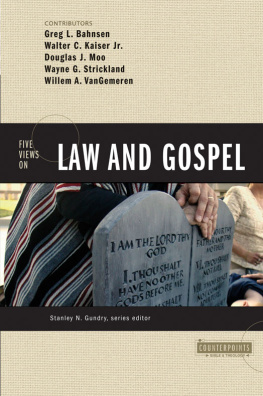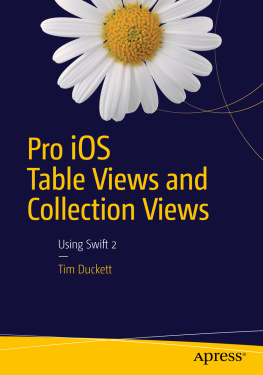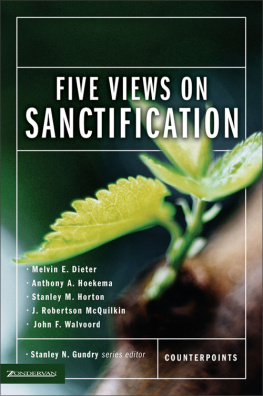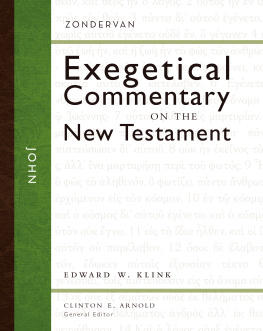BABiblical Archaeologist
BAGDBauer, Arndt, Gingrich, and Danker, Greek-English Lexicon of the New Testament
BibBiblica
BJRLBulletin of the John Rylands Library
BRBiblical Research
BSacBibliotheca Sacra
CSRChristian Scholars Review
CTChristianity Today
CTJCalvin Theological Journal
EJEvangelical Journal
GTJGrace Theological Journal
InstInstitutes of the Christian Religion
IntInterpretation
ISBEInternational Standard Bible Encyclopedia, Revised Edition
JBLJournal of Biblical Literature
JCRJournal of Christian Reconstruction
JETSJournal of the Evangelical Society
JSNTJournal for the Study of the New Testament
JSNTSupSupplements to Journal for the Study of the New Testament
NICNTNew International Commentary of the New Testament
NICOTNew International Commentary of the Old Testament
NIDNTTNew International Dictionary of New Testament Theology
NovTNovum Testamentum
NTSNew Testament Studies
RevExpReview and Expositor
RTRReformed Theological Review
SEStudia Evangelica
SJTScottish Journal of Theology
STStudia Theologica
SupNovTSupplements to Novum Testamentum
TDNTTheological Dictionary of the New Testament
TJTrinity Journal
TNTCTyndale New Testament Commentary
TOTCTyndale Old Testament Commentary
TransfTransformation
TynBulTyndale Bulletin
TZTheologische Zeitschrift
VTVetus Testamentum
VTSupSupplements to Vetus Testamentum
WBCWord Biblical Commentary
WCFWestminster Confession of Faith
WECWycliffe Exegetical Commentary
WTJWestminster Theological Journal
ZNWZeitschrift fr die neutestamentliche Wissenschaft
ZTKZeitschrift fr die Theologie und Kirche
The rise of the fortunes of biblical theology within evangelicalism has served to help preserve the dialogue concerning the proper relationship of Law and Gospel as well as the utility of the Mosaic law for the contemporary Christian. There are a multitude of key ancillary issues that are generated by the Law/Gospel question, such as the purpose of the Mosaic law in the Old Testament and Pauls treatment of the law. Indeed, this important complex of concerns has been the subject of numerous books in recent years. This fact serves to confirm the importance of the issue for the Christian church and underscores the fact that there is no consensus of understanding of the relationship between Law and Gospel. Differing systems of theology often have radically different conceptions of the proper relationship between Law and Gospel. Since ones understanding of these issues has a direct impact on the application to the life of the believer in Christ, I believe it is imperative and helpful to decide the proper relationship of Mosaic law to the saint.
With that in mind, it is the purpose of this volume to facilitate an objective and, I hope, a well-argued presentation of major alternatives regarding the Mosaic Law, its relationship to the Gospel, and the role it plays in personal sanctification as well as in ethical systems. Unlike other treatments of the Law and Gospel issue, this approach features differing views presented in one volume, together with responses designed to highlight and bring into sharper focus the differences, some of which are systemic. This format also gives the reader the opportunity to evaluate the relative strengths and weaknesses of the views presented. The reader may then decide which view best harmonizes with the biblical and theological evidence. At the same time, it may perhaps also serve to foster a greater degree of rapprochement between the advocates of the various systems which, despite their differences, share an evangelical heritage.
This dialogue is not intended as an exhaustive treatment or analysis, but rather is designed to introduce the very complex issues and provide a framework for the resolution of the issue by the reader. Ample documentation is provided in the essays for more in-depth reflection on the issues by the reader.
All of the contributors to this volume represent careful and articulate evangelical scholarship in biblical studies. Each contributor is committed to the primacy and authority of the Scriptures in framing the understanding of the Law/Gospel issue. Each advocate of a view has devoted extensive study to the issue and has written with great conviction. Yet each author has also written with an irenic spirit as befits Christ and Christian charity.
I would like to acknowledge those who have helped in this project. My deep thanks to the other participants who have helped to make this treatise a reality. Each contributor has appreciated the benefit of such an enterprise. They have engaged in this project enthusiastically and have made the task of editing a joy. I also wish to thank Leonard G. Goss and Stanley N. Gundry for their invaluable assistance at several points in the process of composition. I have especially valued the enthusiastic support shown by Len Goss from the inception of the project.
May this dialogue of brothers in Christ glorify God and encourage a life of holiness for his saints. Tu solus sanctus.
Wayne G. Strickland
General editor
Chapter One
THE NON-THEONOMIC REFORMED VIEW
Willem A. VanGemeren
THE LAW IS THE PERFECTION OF RIGHTEOUSNESS IN JESUS CHRIST: A REFORMED PERSPECTIVE
Willem A. VanGemeren
INTRODUCTION
In 1955 two outstanding Christians addressed the topic of the law of God. E. F. Kevan (1903-65), late principal of London Bible College, challenged the members of the Tyndale Fellowship for Biblical Research (Cambridge, England) with a lecture published as The Evangelical Doctrine of Law. Beginning his discussion with the place of Gods law in the created order before the Fall, he affirmed that the law is the rule of life of the redeemed.
John Murray (1898-1975), the late professor of Systematic Theology at Westminster Theological Seminary, addressed the topic of ethics and the law in the Payton Lectures at Fuller Theological Seminary. These lectures were expanded and published in 1957 under the title Principles of Conduct.with the early chapters of Genesis, Murray argued for continuity in Gods ordinances, also called creation ordinances.
Not all students of the Bible were then or are now in agreement with Kevan and Murray. Differences in theological perspectives on the law have existed for many centuries, as the Reformed theologian Jonathan Edwards (1703-58) observed, There is perhaps no part of divinity attended with so much intricacy, and wherein orthodox divines do so much differ as stating the precise agreement and difference between the two dispensations of Moses and Christ.
The issue of the observance and interpretation of the law has become more acute since 1955. Regrettably, while the academic discussion of the law has significantly advanced, the observance of the law has eroded. Growing individualism and narcissism, the closing of the American mind, and ignorance of the Bible have resulted in an ethical crisis, affecting even evangelical Christianity.
Indeed, there are many factors that have led to the modern crisis, and the issues are complex. Yet I believe that submission to Gods law in the spirit of John Calvin and the Westminster standards may well create a deeper longing for God, develop a greater zeal for the interpretation of Gods Word, kindle the flame of a renewed commitment to personal and societal ethics, rebuild relationships, and reconstitute vibrant Christian communities.











